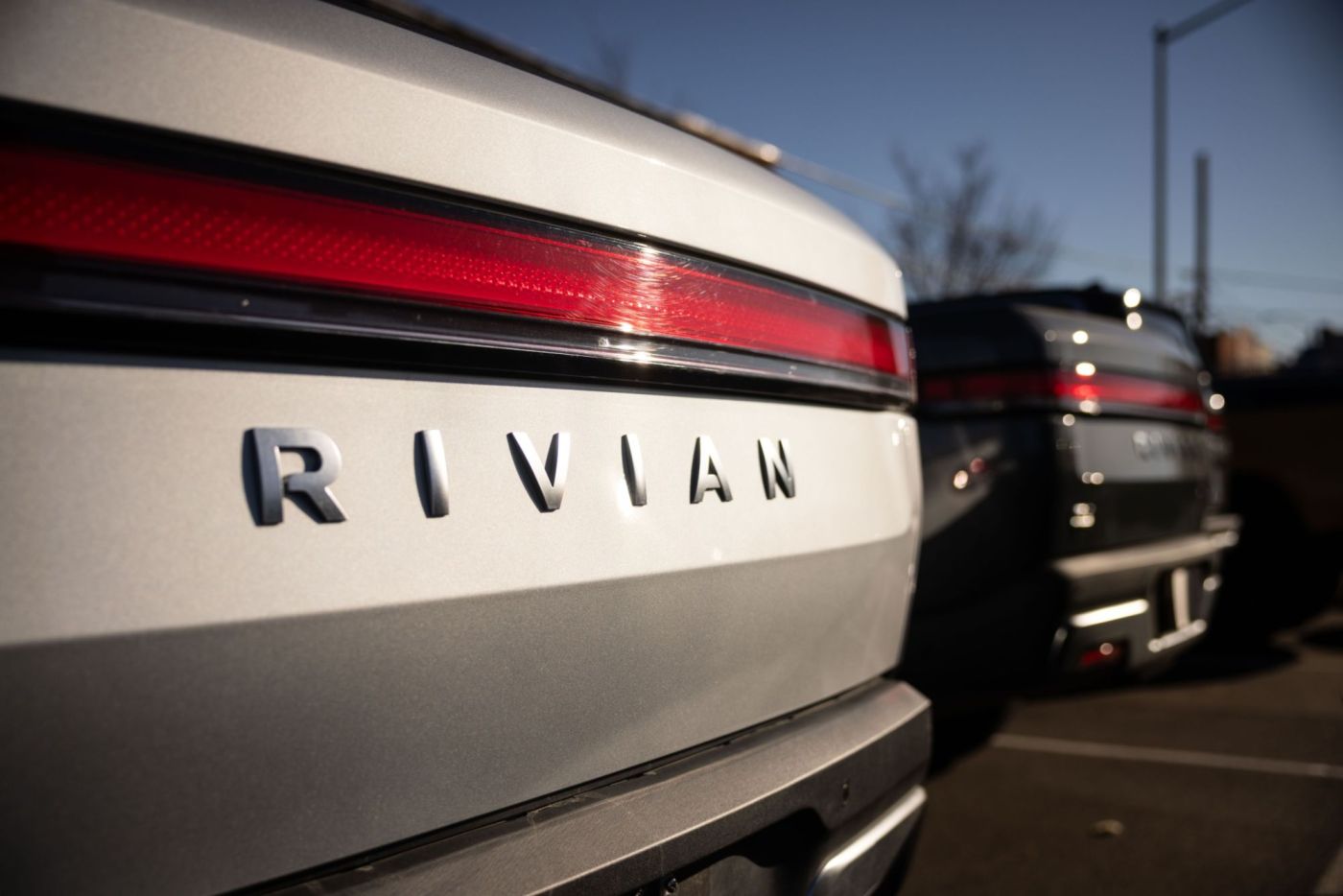By Ed Ludlow and Aashna Shah | Bloomberg
Irvine-based Rivian Automotive shares fell in early trading after the electric-vehicle maker issued a disappointing production forecast and announced plans for another round of job cuts.
The maker of plug-in pickups, SUVs and delivery vans expects to build just 57,000 vehicles this year, in line with last year’s output and well short of analysts’ average estimate for more than 80,000 units.
The company said late Wednesday it will reduce its salaried workforce by about 10%, its third paring in the last year and a half.
Also see: Irvine-based Karma Automotive marks 10 years with eyes on new luxury EVs
The outlook underscores the challenges Rivian is having with scaling production and stemming losses amid a slowdown in the battery-powered vehicle market. The company seen as a challenger to Tesla has struggled with supply-chain snags and now is having trouble managing a tougher environment for consumers.
“Our business is not immune to existing economic and geopolitical uncertainties,” Chief Executive Officer RJ Scaringe said on a conference call. “Most notably, the impact of historically high interest rates, which has negatively impacted demand.”
Rivian shares dropped as much as 15% to $13.07 before the start of regular trading Thursday in New York. The stock has already tumbled 34% this year.
Also see: EVs eligible for $7,500 US tax credit cut to 13 from about 24
Rivian will prioritize cost-cutting over volume growth this year, though it’s still expecting an adjusted loss of $2.7 billion before interest, taxes, depreciation and amortization. The company laid off workers early last year and in mid-2022.
Capital expenditures will rise to $1.75 billion this year, Rivian said, up from about $1.03 billion in 2023. The company initially forecast that it would spend $2 billion last year. Chief Financial Officer Claire McDonough told analysts on the conference call that production-efficiency gains have allowed the company to rein in its capital spending.
Rivian builds the R1T pickup, R1S sport utility vehicle and a battery-electric delivery van at its sole plant in Normal, Illinois. There’s a second factory in the works near Atlanta, where the manufacturer plans to build its first lower-priced EV starting in 2026.
The company reported an adjusted loss of $1.36 a share for the fourth quarter, a bigger deficit than the $1.33-a-share average estimate compiled by Bloomberg. Revenue of $1.32 billion narrowly topped expectations.
Rivian lost over $40,000 on every vehicle it delivered in the last three months of the year, about $10,000 more than it lost per vehicle in the third quarter. The company attributed this in part to delivery of fewer vans to Amazon.com Inc. A year ago, Rivian was losing $124,000 per vehicle as it struggled with supply issues.
Lucid Group Inc., another relatively new player in the EV market, also let down investors with its outlook for the year ahead. The maker of the Air sedan said late Wednesday it expects to make 9,000 vehicles this year, up from just under 8,500 last year but short of what analysts were expecting.
The Newark-based company lost 29 cents a share in the fourth quarter and said it has enough liquidity to continue operations “at least into 2025.” Lucid shares slumped as much as 10% in early trading Thursday and have slumped 12% this year.
Related Articles
The Compost: Here’s the scoop on EV sales
The big miss on electric cars is remaking Europe’s auto industry
Irvine-based Rivian has a cash problem as EV demand slows
Ford slashes price of electric Mustang Mach-E after sales plunge
Wireless charging for EVs inching closer to reality





